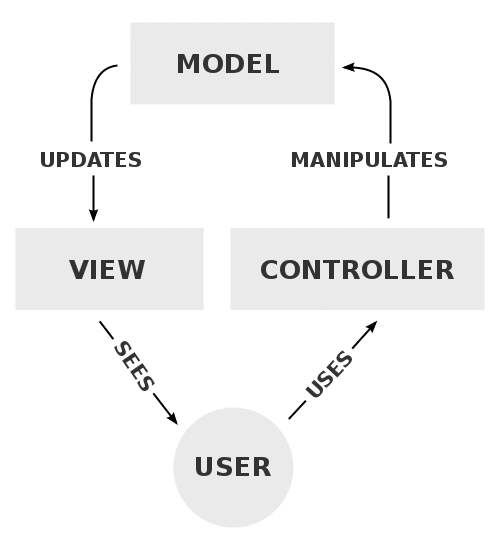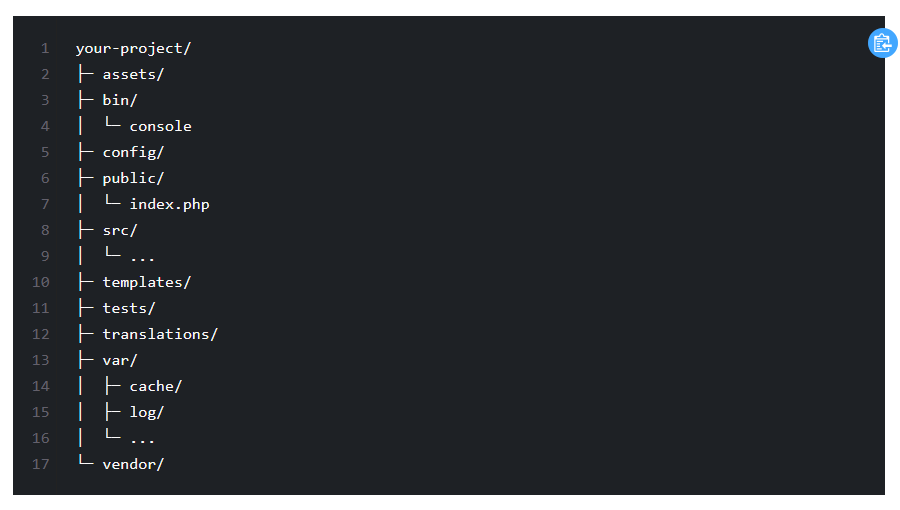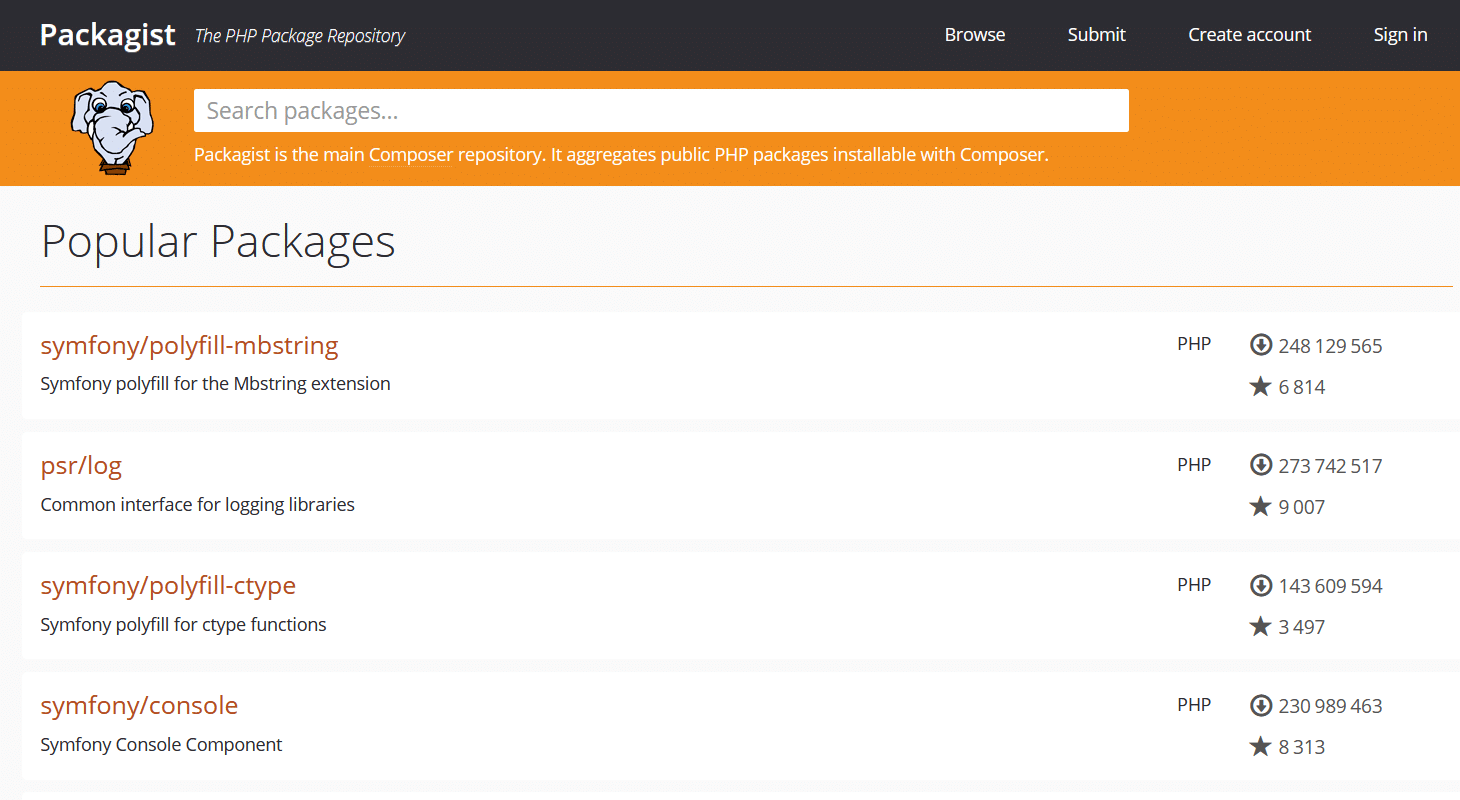Best PHP Frameworks for 2021
When you think of web development, aside from HTML, CSS, and JavaScript, the PHP language is one of the names that comes to mind.
According to W3Techs, PHP is used by around 79% of all websites. It’s eight times more popular than ASP.NET, its nearest rival in server-side programming languages.
PHP’s usage share has remained consistent over the last year.
PHP programmers will often turn to a PHP framework to compose their code. Let’s find out what PHP frameworks are, why they are used, and examine some of the most popular ones.
What Is a PHP Framework?
Theme Reviewer
A PHP framework is a platform to create PHP web applications. PHP frameworks provide code libraries for commonly used functions, cutting down on the amount of original code you need to write.
Why Use a PHP Framework?
There are many good reasons for using PHP frameworks as opposed to coding from scratch.
1. Faster Development
Because PHP frameworks have built-in libraries and tools, the time required for development is less.
For example, the CakePHP framework has the Bake command-line tool which can quickly create any skeleton code that you need in your application.
Several popular PHP frameworks have the PHPUnit library integrated for easy testing.
2. Less Code to Write
Using functions that are built-in to the framework means that you don’t need to write so much original code.
3. Libraries for Common Tasks
Many tasks that developers will need to do within web apps are common ones. Examples are form validation, data sanitization, and CRUD operations (Create, Read, Update, and Delete). Rather than having to write your own functions for these tasks, you can simply use the ones that are part of the framework.
4. Follow Good Coding Practices
PHP frameworks usually follow coding best practices. For example, they divide code neatly into a number of directories according to function.
They force you to organize code in a cleaner, neater, and more maintainable way.
Frameworks also have their own naming conventions for entities which you should follow.
5. More Secure Than Writing Your Own Apps
There are many PHP security threats including cross-site scripting, SQL injection attacks, and cross-site request forgery. Unless you take the right steps to secure your code, your PHP web apps will be vulnerable.
Using a PHP framework is not a substitute for writing secure code, but it minimizes the chance of hacker exploits. Good frameworks have data sanitization built-in and defenses against the common threats mentioned above.
6. Better Teamwork
Projects with multiple developers can go wrong if there isn’t clarity on:
- Documentation
- Design decisions
- Code standards
Using a framework sets clear ground rules for your project. Even if another developer isn’t familiar with the framework, they should be able to quickly learn the ropes and work collaboratively.
7. Easier to Maintain
PHP Frameworks encourage refactoring of code and promote DRY development (Don’t Repeat Yourself). The resulting leaner codebase needs less maintenance.
You also don’t have to worry about maintaining the core framework, as that’s done for you by the developers.
What You Need to Know Before Using a PHP Framework
The first thing you need to know before using a PHP framework is PHP itself! If you don’t have a good command of the language, you will struggle to pick up a framework. Most frameworks run with PHP version 7.2 or later.
If you need to brush up on your PHP, read these articles:
Next, you should have built some PHP applications of your own, so you have a clear understanding of what’s required on the frontend and backend.
Knowing object-oriented PHP is also a must, as most modern PHP frameworks are object-oriented. Make sure you understand concepts like classes, objects, inheritance, methods, traits, and access modifiers.
Since many web apps connect to a database, you should know about databases and SQL syntax. Each PHP framework has its own list of supported databases.
Understanding an Object-Relational Mapping (ORM) model is useful. ORM is a method of accessing database data using object-oriented syntax instead of using SQL. This means you can write your database queries in familiar PHP, although there may be times where you want to use SQL.
Many PHP frameworks have their own ORM built-in. For example, Laravel uses the Eloquent ORM. Others use an open source ORM like Doctrine.
Understanding how web servers like Apache and Nginx work is helpful. You may need to configure files on the server for your app to work optimally.
You will probably do much of your development locally, so you need to know about localhost, too. Another option is to create and test your app in a virtual environment using Vagrant and VirtualBox.
Model View Controller architecture
PHP frameworks typically follow the Model View Controller (MVC) design pattern. This concept separates the manipulation of data from its presentation.

Model View Controller Process (Image source: Wikimedia Commons)
The Model stores the business logic and application data. It passes data to the View, the presentation layer. The User interacts with the View and can input instructions via the Controller. The Controller gives these commands to the Model, and the cycle continues.
In a nutshell, the Model is about data, the View is about appearance and the Controller is about behavior.
An analogy of the MVC pattern is ordering a cocktail at a bar.
The User is the patron who arrives at the bar (the View) in need of refreshment. The User gives their drink order to the bartender (the Controller).
The Controller makes up the order from the Model – the recipe, ingredients, and equipment. Depending on the cocktail, they might use any of the following items, or others:
- Alcohol
- Fruit juice
- Ice
- Lemon
- Glass
- Cocktail shaker
- Olive
- Stirrer
The finished cocktail is placed on the bar for the User to enjoy. Should the User want another drink, they must speak to the Controller first. They are not permitted to access the Model and mix their own drink.
In PHP application terms, the MVC could correspond to the following:
- Model: a database
- View: a HTML page or pages
- Controller: functions to access and update the database
Being comfortable using a command-line interface (CLI) helps when using a PHP framework. Laravel has its own CLI, Artisan Console. Using the make command in Artisan you can quickly build models, controllers, and other components for your project.
Familiarity with the command line is also key to using the Composer PHP package manager. The Yii Framework is one of several which uses Composer to install and manage dependencies, packages which are required for an application to run.
Packagist is the main repository of packages that you can install with Composer. Some of the most popular Composer packages run with the Symfony framework.
What Should You Look for in a PHP Framework?
Here are some factors you need to consider when choosing the best PHP framework for your project.
Firstly, if you’re new to a PHP framework, the learning curve shouldn’t be too steep. You don’t want to invest precious time learning a framework if it’s too tricky to grasp. Luckily, PHP is one of the best programming languages to learn.
Next, you want a framework that is easy to use and saves you time.
A PHP framework should meet your technical requirements for a project. Most frameworks will have a minimum PHP version and certain PHP extensions that they work with. Make sure that your framework supports your database(s) of choice, and that you can use the framework with the web server that you want to deploy to.
Choose a framework with the right balance of features. A feature-rich framework can be a boon for some projects. On the other hand, if you don’t need many features, pick a framework that is stripped down and minimal.
Some desirable features are:
- Testing
- Cache storage
- Templating engine: a way to output PHP within HTML using a PHP class
- Security
If you need to build an application that is scalable, select a framework that supports this.
Finally, good documentation and support are important so that you can make the most of your PHP framework. A framework with a large and vibrant community is also more likely to stand the test of time and is also able to assist you when you run into difficulties.
Suggested reading: How to Improve PHP Memory Limit in WordPress.
What Are the Best PHP Frameworks in 2021?
It’s difficult to get a definitive list of PHP frameworks. Wikipedia lists 40 PHP frameworks, but some of those are better described as content management systems, and undoubtedly there are many more.
Early PHP frameworks include PHPlib, Horde, and Pear. Most of the big names now launched in 2005 or later.










Comment (Best PHP Frameworks for 2021)
Denise
November 1, 2021I love to learn about PHP and I am very well aware that PHP is not dead